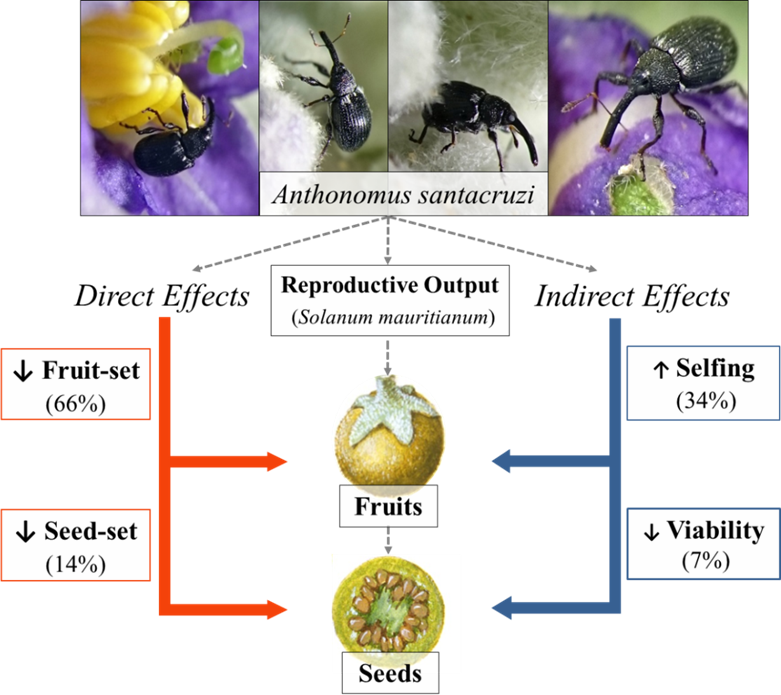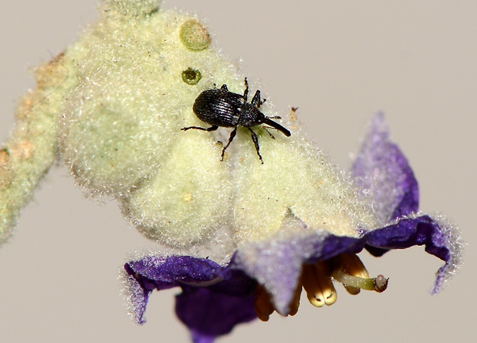A paper published in the journal Biological Control showed that flower-feeding weevils can be effective biocontrol agents by reducing the number of flowers, fruits and seeds that the invasive tree Bugweed (Solanum mauritianum) produce. The research, conducted by C·I·B PhD student Blair Cowie, and C·I·B Core Team Member Prof Marcus Byrne, at the University of the Witwatersrand, assessed the impact of the flower-bud feeding weevil, Anthonomus santacruzi, on fruit production in Bugweed, and the role of the weevil as an indirect pollinator.
Adult weevils spend most of their lives on and around Bugweed inflorescences, feeding on the flowers, particularly the anthers (pollen), petals and buds. This results in the deformation of the flowers or premature shedding of flowers and buds from the inflorescence. Previous studies have shown that Bugweed is self-compatible, like many invasive trees, but high levels of self-pollination can often have negative effects of inbreeding.
Results from this study showed that the flower-feeding weevils reduced the number of flowers, fruits and seeds that the Bugweed produced. The study further showed that by damaging the flowers, the weevils deter visits from pollinators, such as bees, and more interestingly may increase the likelihood of self-pollination. Self-pollination results in the production of smaller Bugweed fruits with fewer seeds, with reduced viability.
“This research suggests that in areas where the weevils are well established, they serve to limit the fruit and seed production as well as facilitate the self-pollination and subsequent inbreeding of Bugweed. Although these findings show great promise towards the biocontrol of Bugweed in South Africa, it’s likely to be a long term game, given the widespread and persistent invasions of this tree” says Blair Cowie, lead author of the paper and PhD student. He adds that “future fieldwork will assess the contribution of this weevil to self-pollination in Bugweed populations.”
For more information, contact Blair Cowie at blair.cowie.bc@gmail.com
Read the paper in Biological Control


